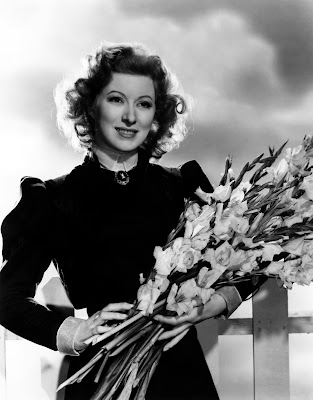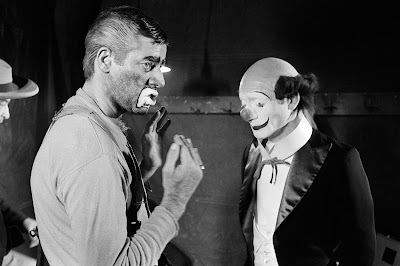Greer Garson was born on 29 September 1904 in Manor Park, East Ham, then in Essex, now part of London, the only child of Nina (née Nancy Sophia Greer; died 1958) and George Garson (1865–1906), a commercial clerk in a London importing business. Her father was born in London, to Scottish parents, and her mother was from Drumalore (or Drumaloor), County Cavan. The name "Greer" is a contraction of "MacGregor", another family name.
Louis B. Mayer discovered Garson while he was in London looking for new talent. Garson was signed to a contract with MGM in late 1937, but did not begin work on her first film, Goodbye, Mr. Chips, until late 1938. She received her first Oscar nomination for the role, but lost to Vivien Leigh for Gone with the Wind. She received critical acclaim the next year for her role as Elizabeth Bennet in the 1940 film, Pride and Prejudice.
Garson starred with Joan Crawford in When Ladies Meet in 1941, and that same year became a major box-office star with the sentimental Technicolor drama, Blossoms in the Dust, which brought her the first of five consecutive Best Actress Oscar nominations, tying Bette Davis' 1938–42 record, which still stands. Garson won the Academy Award for Best Actress in 1942 for her role as a strong British wife and mother in the middle of World War II in Mrs. Miniver. (Guinness Book of World Records credits her with the longest Oscar acceptance speech, at five minutes and 30 seconds, after which the Academy Awards instituted a time limit.) Also nominated for Madame Curie (1943), Mrs. Parkington (1944), and The Valley of Decision (1945), she frequently costarred with Walter Pidgeon, ultimately making eight pictures with him: Blossoms in the Dust (1941), Mrs. Miniver (1942), Madame Curie, Mrs. Parkington, Julia Misbehaves (1948), That Forsyte Woman (1949), The Miniver Story (1950), and Scandal at Scourie (1953).
In 1951, she became a naturalised citizen of the United States. She made only a few films after her MGM contract expired in 1954. In 1958, she received a warm reception on Broadway in Auntie Mame, replacing Rosalind Russell, who had gone to Hollywood to make the film version.In 1960, Garson received her seventh and final Oscar nomination for Sunrise at Campobello, in which she played Eleanor Roosevelt, this time losing to Elizabeth Taylor for Butterfield 8. Her final role for television was in a 1982 episode of The Love Boat.













